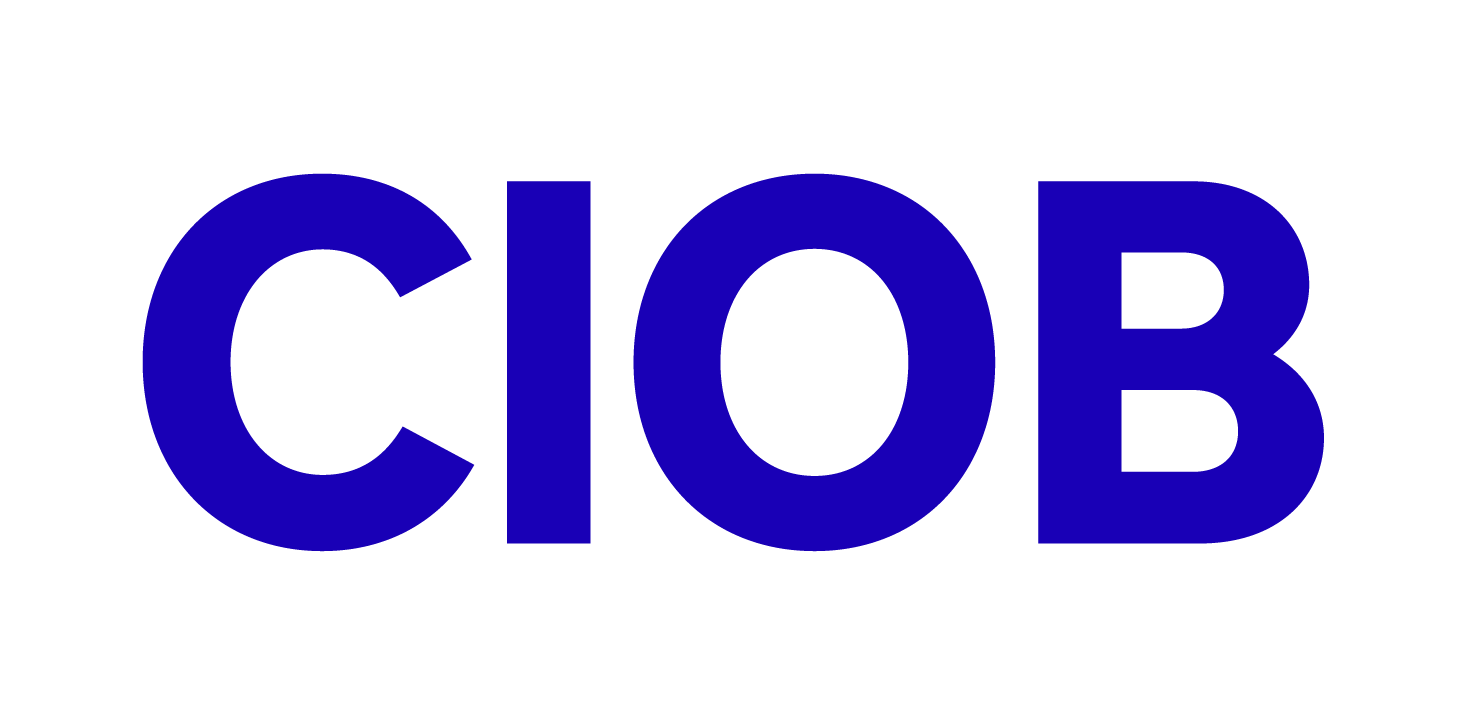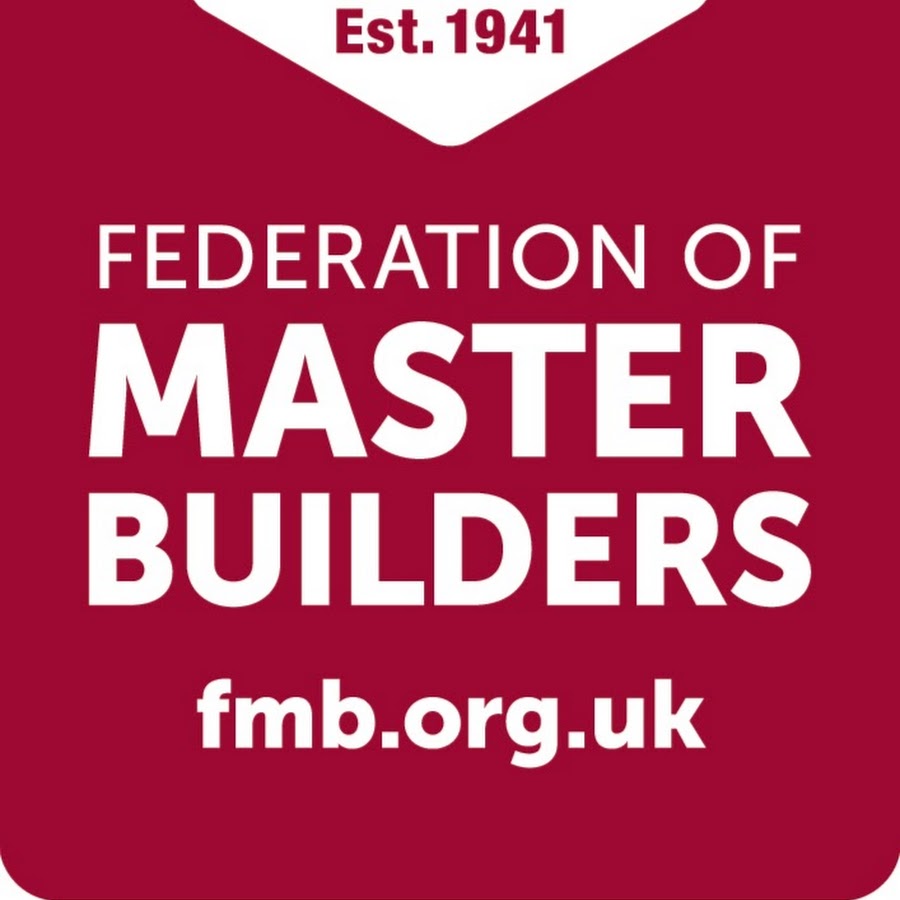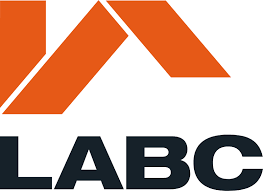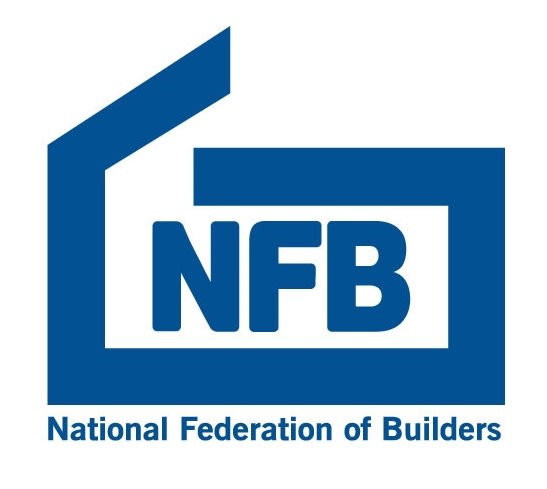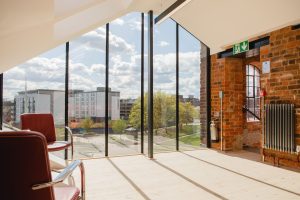
We would like to say a huge CONGRATULATIONS to the Museum of Making from the East Midlands for winning the Conservation & Regeneration Award and to Foleshill Health Centre from the West Midlands who were Highly Commended in the Value Award category at the CE National Awards last Friday.
Well done to all involved in the Museum of Making project including Speller Metcalfe, Derby Museums, Bauman Lyons Architects, GCA Consulting Engineers, IPInitiatives, Preston Barber, Derry Building Services and Core.
Celebrating the area’s rich history of innovation, the original 1721 Museum of Making in the Derwent Valley Mills UNESCO World Heritage Site is a heritage development that has saved an iconic public asset and brought the whole building back into use for the first time in 50 years. It has provided long term security, safety and sustainability for the building and its collections, telling Derby’s 300-year history of making on what is widely regarded as the site of the world’s first modern factory and provides an anchor for the city’s vision as a ‘City of Making’ – estimated to provide a gross economic impact of over £4.2m annually for the city.
The initial scope for the project launched in 2012 by Derby Museums, whereby a client/architect-led working group (including the civic society, community and planning team) explored the heritage narrative of the site to understand feasibility of ideas and challenges in conserving and restoring.
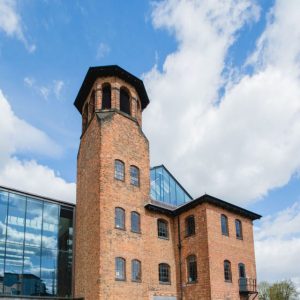
CLICK HERE to see the full details of the Museum of Making project
Well done to all involved in the Foleshill Health Centre project including Community Health Partnerships, Tooley Foster, AECOM and Portakabin Ltd
Foleshill Health Centre is the UK’s first PassivHaus primary care healthcare building, breaking new ground in NHS’s drive towards zero carbon. The 619m2 2 storey 14 module building to PassivHaus standards provides GP premises serving 10,000 patients.
Following Outline Business Case approval, the client and design team chose an offsite modular solution to achieve the desired high quality low energy solution, which travelled through almost 5 years of conceptual and analytical friction before approval for the scheme to go ahead released the brakes of a fast-paced design finalisation, offsite construction and site based fit out. To make the best use of the delays and harness Early Contractor Involvement by Portakabin, the Client chose to use an existing NHS Shared Business Services (SBS) modular framework, thereby according with the Construction Playbook on both offsite and procurement.
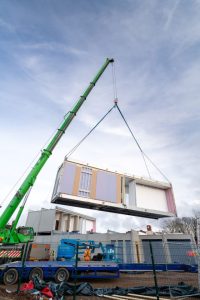
CLICK HERE to see the full detials of the Foleshill Health Centre project
With the shift away from ‘traditional construction thinking’ to the adoption of assembly principles – offsite construction techniques and technologies are shaping the future of construction.
Returning in 2022, Offsite Expo brings together those who are driving change in the construction sector – playing host to the leading UK and international offsite manufacturers and component suppliers showcasing a broad spectrum of panelised, volumetric systems, pod and prefabricated MEP solutions.
Exhibitors and sponsors can cost-effectively access this rapidly growing, lucrative sector through taking advantage of a range of flexible exhibition and sponsorship packages, available to offer a wide variety of promotional opportunities to suit any marketing aims, resources and budgets.
Exhibiting at Offsite Expo allows you to align your products and services with this increasingly important sector, whilst raising your company profile and equity through direct interaction with your key target audience, supporting you to generate highly qualified leads.
Whilst at Offsite Expo, Exhibitors can learn more about best practice with speakers from around the globe at the Offsite Masterclasses and identify opportunities for future collaboration and knowledge transfer. As well as this, there is the opportunity to Gain consultancy advice from the event’s leading offsite experts – Cogent Consulting, who will be offering free one-to-one meeting opportunities.
An Exhibitor Exclusive: Gain access to the Offsite Connect Buyers & Specifiers Forum and meet hard to reach architects, contractors, specifiers and purchasing managers who have the power to procure your products and systems. For more information on the Forum and how you can get involved, please click here.
To find out more about exhibiting at Offsite Expo, please contact the team on 01743 290 001 or email Julie.williams@radar-communications.co.uk
WWW.OFFSITE-EXPO.CO.UK
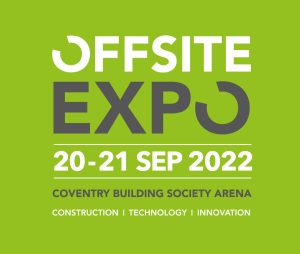

Combining Dame Judith Hackitt’s Review and its ‘golden thread’ with other calls for us to change including the Farmer Review, The Value Toolkit and the Gold Standard for Frameworks, we are now getting to the crux of the next emerging paradigm and how we in construction can transition to it.
This month Martyn Jones explores what change models might best suited to guide us through this shift to the next paradigm. Will the models advocated in the 1990s – as we then pivoted to the ICT Paradigm – cut the mustard in meeting the opportunities, challenges and purpose of the emerging paradigm?
Let’s start with the nature and scale of the change or repurposing we face. Farmer’s blunt branding of his report has been criticised but he remains unrepentant on “modernise or die”. “It was very deliberate: it was the message I wanted to give,” he says. “There are too many apologists that think things are always going to be like this and that the industry will struggle on. But I’m saying it’s going to get worse and worse. I wanted people to understand the seriousness of it.”
Alongside this, Hackitt has expressed “serious concern” over a lack of take-up by the construction industry of tools and frameworks that have been developed to make high-rise residential buildings safer following the Grenfell Tower disaster.
She said there was a “mixed picture” in terms of the industry’s response, with some organisations making “excellent progress” while others are “holding back” until they see more detail and are required to make changes as a result of legislation.
She went on: “It has been crystal clear to many of us from the outset that legislation alone will not deliver the outcomes we are looking for. The culture of the industry itself must change to one which takes responsibility for delivering and maintaining buildings which are safe for those who use them.”
We’ve been here before. Back in the 1990s, construction was being challenged by the Egan Report to embark on a revolution. What can we learn about the change models we used from that era? Let’s remind ourselves of what, back then, were seen as the common factors characterising successful innovation:
- Recognising the need for change
- The commitment by leaders to change and the acceptance and sharing of the risks involved
- Treating innovation as a strategic corporate and supply-chain endeavour with a systematic approach to developing, implementing, monitoring and (importantly) sustaining it
- Positioning key individuals or champions of change at influential roles within organisations, at the interfaces between organisations and at crucial decision-making points in projects
- Supporting an effective ongoing shared learning process making use of external advice and support
- Being responsive to the technological and other changes taking place within and between organisations and in the wider environment
- Achieving effective linkages within and between organisations leading to more collaborative relationships
- Developing and sustaining an intra- and inter-organisational culture to support innovation
Some of these are clearly still relevant. But that was then and this is now. Is there any learning we can carry forward from the change models we used then to help us pivot to the next paradigm or are they out of date and too mechanistic for today?
Well, for a start, it’s important to recognise that they weren’t the Heineken of change models (other lagers are available) as clearly the Egan agenda wasn’t universally adopted and we didn’t see a revolution in construction. Those of us who have been around long enough will remember Sir John Egan’s own comment on the industry’s response to his report. Paraphrasing what he said: I called for a revolution and we ended up with a bit of change.
Our frankly lacklustre response to calls to change back then is not inspiring. Also, nothing stands still. In the meantime, of course, the values, needs, aspirations and concerns of individuals – our customers and those working in the industry – and collective as a society as a whole have changed.
The industry of the future will need to enthuse Generation Z, attracting them into the industry and enabling them to thrive. To help them find meaning in their work, align themselves with other people and projects of shared interest, and elevate communication and collaboration through increased empathy and co-creation.
And here’s another thing: it seems that the very basis of our business-as-usual rationale is shifting too, from today’s Fordist emphasis on productivity, efficiency, and output (although we could do with more productivity and efficiency) to creativity, innovation, and a new purpose focused on the safety and wellbeing of our end users and own our people, and protecting and repairing our planet.
As our Procurement Theme Group has consistently argued over a number of years, our operating structure, culture and business models need to be repurposed. They have largely remained remnants of Fordism and the Industrial Age, even though we’ve been living in the Information Age for the past 30 years. And while we in construction are still trying to catch up with the current paradigm, the world is yet again already moving into the next: the Age of Purpose.
Given the scale of repurposing that’s needed, we need to rethink our change management models. Designed to serve organisations of the past, we need to move away from change management methodologies that consider organisations and our operating system to be machinelike with top down, hierarchical structures that can be programmed in a certain way.
To change construction into a modern industry, we need to shift from process-driven, mechanistic models of change management to more human-centred approaches that appeal to the wants and needs of individuals, both inside and outside our industry.
We need to actively and collectively sense changes in our wider environment and respond by adapting ourselves and our reactions to them and repurposing our value propositions. We need a more human-centred perspective that reconsiders construction as a vibrant organism of free-thinking, empowered individuals freed from the shackles of the industry’s traditional operating system, business models and behaviours.
We will need to be much better at nurturing creativity and innovation. We need to encourage empowerment, entrepreneurial thinking, and risk taking. In the words of Hackitt and many others, we need to change the culture of the industry.

Welcome to the CE Midlands’ February 2022 newsletter. We’re only a month into the year but, as Chair of the G4C Midlands, I’m already so excited for the next 11 months of in-person events and growing our committee!
The G4C Midlands group is a young professionals networking group with the following aims:
- Enhancing collaboration between young professionals within the construction industry
- Creating an open forum to share knowledge, experience and opinions
- Providing a platform for young professionals to present their suggestions for the betterment of the industry to leaders and decision makers
In our event pipeline for the rest of the year, we are really looking forward to getting our CPD events started and hosting social events in Birmingham’s most impressive architectural locations. Over the past few months, we have been blown away by the enthusiasm for our monthly breakfast networking events which allow attendees to learn about key topics and get involved in group activities to deepen this understanding. The events have been so popular that we have decided to make them a regular staple moving forwards. To get an idea of the quality of discussions, you can read the bios of our past and upcoming guest speakers below:

Mike Brooman is CEO of Vanti, an award-winning creative technology company and Master Systems Integrator that designs and engineers intelligent technological solutions, transforming buildings into spaces that support, enable, and empower people. Mike has worked across every RIBA stage (concept to in-use) on major design and integration projects for a variety of clients including British Land, Informa plc, Tottenham Hotspur, and Canary Wharf, using cutting-edge technologies and a holistic methodology to help those organisations achieve their business goals. By championing an approach that puts the user at the core of building technology design, Mike focuses on creating extraordinary user experiences within the built environment.

Dan Bridgewater is a Partner at Baily Garner. His main role is Group Head of the Birmingham office, where he leads the multi-disciplinary consultancy team. Dan is a Chartered Architect and has completed projects in the residential, education and blue light sectors. Dan joined us to share Baily Garner’s toolkit publication on the Future Homes Standard, which advises on how new build homes can meet and exceed emerging regulations.

Lisa Saunders is responsible for YTKO’s construction related projects across the South West of England. With nearly 10 years’ experience within the construction sector, Lisa has gained a plethora of knowledge within all levels of the supply chain. She has a strong passion for diversifying and supporting innovation at every opportunity within the construction industry. In her role, Lisa supports the built environment and local authorities to create a real step change in the approach and acceleration of Modern Methods of Construction (MMC) to address many of the challenges faced by the sector. She strongly believes that whilst MMC offers solutions to tackle the UK’s housing crisis, newer and immerging technologies also offer a real long-term solution to driving sustainability in the sector, both financially and environmentally.
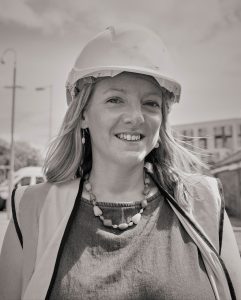
Ele George will be joining us to highlight how radical and innovative solutions can address the need to move urgently towards a sustainable built environment. Examples will include how digital and offsite solutions are already being adopted, and how good design and resource efficiency must be synonymous

Nora Taylor’s passion is in delivering successful business change by combining strategic and implementation skills to realise business critical end goals for clients. Her session will include widening our understanding of the process of business change as well as taking us through activities to help us identify challenges in implementing change and how to overcome them.
The G4C Midlands is actively recruiting for new committee members. If you’re under 35, work in the construction industry and would like to be involved – or know someone who fits this criteria – get in touch!
This is the time of the year we reflect on times past and the year ahead. And let’s face it, 2021 was such a mixed bag that Martyn Jones was reminded of the first lines of Charles Dickens’ A Tale of Two Cities: “It was the best of times, it was the worst of times, it was the age of wisdom, it was the age of foolishness.”
Dickens suggested an age of radical opposites taking place at the same time, which just about sums up construction in the last year or two. Let’s start with some positives. The winners of the 2021 CESW Awards yet again demonstrated what the very best of construction can achieve. The submissions demonstrated how clients and their advisers and supply chains worked collaboratively, creatively and with agility to deliver excellent outcomes despite the pandemic, labour and material shortages, and supply chain disruption.
On the other hand, the revelations from the Grenfell inquiry have vividly and excruciatingly confirmed the other much less attractive side of our industry and its underlying weaknesses. We already knew that some clients and their advisors, designers, main and specialist contractors, and the suppliers of materials and components have all conspired in a race to the bottom. Successive governments haven’t helped either with their light-touch approach to regulation. And then there are the parts played by ineffective control of quality and weak component testing regimes.
How come we’ve ended up with such contrasting cultures, approaches and behaviours in the same industry? How come we have a two-tier system with some sections of the industry fully buying into the Rethinking Construction/Constructing Excellence agendas and others that clearly are not? Why haven’t we all recognised the need for the leadership across the whole operating system to deliver outcomes focused on best value rather than lowest price?
The main reason is that many clients, their advisers, and suppliers often fall for the lure of the short-term when we all know that most construction projects are expected to go on providing value for many years over their lifetime. But, for some, the short-term view has had much appeal: what is the cheapest cost for delivering my project NOW? Will I even be around to see the longer-term benefits or weaknesses of the project? And, even if I may be, will I be held to account for disappointing longer-term performance? Will anyone consider how better the project could have been if we had spent more time considering the safety and functionality of the completed project? (The Grenfell inquiry is answering all the above questions and reminding us that chickens do eventually come home to roost.)
Downstream in the process this approach often persists too. Subcontracts are often let in a similar fashion on the basis of lowest price for THIS project, not potential future projects where a specialist may be able to work with a main contractor to not only provide value for the client in terms of improved project outcomes but also to enhance the main contractor’s reputation, add mutual competitive advantage and secure future work.
So, what should be our collective resolve for 2022? Surely, given the evidence from the Grenfell inquiry coupled with the increasingly clear features of the emerging 4th industrial revolution (4IR), now is the time to commit to a recalibration of our values, culture, operating system, procurement approaches and business models. This is a hugely ambitious agenda but the disruption that we have experienced over the past two years could be seen as preparing us for the radial and systemic changes that are needed.
We could start by unlearning our old habits and behaviours that have been so painfully laid bare by the Grenfell inquiry. We need to learn new things about ourselves, our relationships with each other and how we go about responding to the emerging technological-economic-social paradigm. We need to better understand the needs of external and internal customers and our planet throughout the whole life cycle of our products. We need to build better, more value-focused interorganisational relationships, promote more transparent and integrated processes, and reward good behaviour.
In short, we need to fashion a new compact between clients and their suppliers of construction products and services in a race to the top – not to the bottom. In this race to the top, we need to be a force for good embracing environmental imperatives and adding social value. We need to blur the boundaries between the physical, digital, and biological worlds. We need to embrace the advances in technologies such as artificial intelligence (AI), robotics, the Internet of Things (IoT), 3D printing, genetic engineering, and quantum computing whist shaping them to the specificities of the built environment – never forgetting that the built environment is designed, built and operated by people for people and that these technologies need to be humanised so that they address our needs.
Given this radical yet humanised agenda for change It looks like being yet another busy year for CESW, particularly for our new Theme Groups providing the thought leadership needed in SMART Construction, the Climate Crisis, Building Safety and Future Skills.
Digital Construction Skills are delighted to announce the launch of a new service for Constructing Excellence Midlands members for 2022. DCS have received funding from CITB to provide free mentoring support to help you adopt new digital tools and ways of working. There are no forms to fill in, simply book a 15, 30 or 60-minute with a digital construction specialist to get started.
This mentoring support of up to 10 hours per company, is delivered by Digital Construction Skills and is aimed at SME construction company owners, directors or senior managers with responsibility for business improvement or digital change in your company.
All the mentors on this programme have recent, real-world experience on the front line of the construction industry and are specialists in the technical and commercial aspects of digital construction including digitalising information flow and physical elements such as 3D models and reality capture.
Your mentor can help you wherever you are on your digital journey, for example if you:
- Haven’t yet explored how digital tools can help you, but know there is room for improvement in your business
- Have identified where you could improve your processes or activities using digital solutions and are ready to get started
- Have already started selecting or implementing digital tools but have hit challenges or simply stalled
- Would like to increase your profitability, grow your business or tender for bigger jobs
- You would like to access other funding and support available which can help you with digital adoption
Here’s what others have said about the support they have received:
“Digital Construction Skills helped us access funding to help us train our staff in a new digital platform we are rolling out across our business.” – Andy Dalrymple, Managing Director, Mackenzie Construction
“Within our first session with Digital Construction Skills, we identified the types of digital tools which could help us save time and money and ruled out the ones that weren’t relevant to us.” – Keith Burrell, CEO, Procladd (Scotland) Ltd
“Thanks to free support from Digital Construction Skills, I am adding several new revenue streams to my business including carrying out drone surveys and setting out construction works.” – Ed Clement, Owner, Patterson Bailey Engineers
“The support helped us get all the right people together in one room, and get to the point where we were able to make a clear decision on the priority areas for digital tools.” – David Minns, Operations Director,
GAC Environmental
Andrew Carpenter, Chief Executive opening remarks for January 2022 newsletter
It with immense pleasure that I welcome you to the first CE Midlands Newsletter of 2022. Late last year your board had an Away Day to agree the way forward for 2022 and beyond and this has resulted in a re-structing of our Theme Groups to focus on Greener + Safer + Smarter. We hope by concentrating on these ‘key’ topics of the moment this will add value to both individual members and their organisations. All members are encouraged to put forward participants in one of our four new Theme Groups as below:
- Climate Crisis
- Building Safety
- Future Skills
- Smart Construction (Digital & Offsite)
In addition, the board has identified three cross-cutting strands that will be weaved into each of our Theme Groups as follows:
- Procurement on Value
- Health & Wellbeing
- Equality, Diversity & Inclusion
We are delighted that the links with the key UK wide construction sector agendas are being expanded and our influence is growing to ensure the Midlands is well represented on the national stage. I would draw your attention to the following in which we are already involved:
- The Value Toolkit with Construction Innovation Hub Value Toolkit – Construction Innovation Hub
- Building Safety Charter with Considerate Contractors Building a Safer Future – Building Safety Starts with You
- Construct Zero with Construction Leadership Council CO2nstructZero » Construction Leadership Council
You will note that there is very much a joined-up approach with our Theme Groups feeding into the national agenda and vice versa. As the year progresses, we hope that our Best Practice Clubs will pick up on this same agenda to complete the end-to-end communication channel.
To add value to our movement I am delighted to say that our G4C movement is really beginning to take shape under the expert leadership of Nikita Badesha & Peter Richardson. Most notable have been the series breakfast meetings held in Birmingham on the first Thursday of the month and these will continue into 2022. All members are encouraged to get their colleagues of thirty-five and under to participate in this valuable group of young professionals.
We are excited about the prospect of returning to something more like normal when it comes to events in 2022 and with that in mind we have a packed programme in store for members and supporters which may be viewed here: Events Planner – Constructing Excellence Midlands. Obviously, this will be COVID willing, and we will keep you posted on an event-by-event basis. We are extremely excited to have recently launched our 2022 Awards:
- West Midlands: About the awards – West – Constructing Excellence Midlands
- East Midlands: About the awards – East – Constructing Excellence Midlands
The deadline for entries is 11th February and 11th March 2022 respectively but please do not leave it until the last minute, get your entry in early and take advantage of the early bird ticket offer. Do not forget you have to be in in to win it! We do have a few sponsorship packages still available if you are interest. Please contact me at andrew.carpenter@cemidlands.org. The regular Friday webinars, which have proved so valuable since their Launch in 2021, will continue with the first one this coming Friday 14th January 2022 when we welcome Richard Smith of NHBC to discuss all matters MMC Webinars – Constructing Excellence Midlands
Finally, I would say that we are on a bit of a membership drive currently so if you know of any organisation who has not signed up yet, please give me their contact details and we will do the rest.
May I wish you a happy and prosperous New Year and say I look forward to collaborating with you in the coming months and to seeing you at one or more events throughout the year.
We are planning an exciting array of events and activities for 2022 most of which will provide members and supporters with excellent sponsorship opportunities. If you would like to discuss any of the events listed below, please contact me via email at andrew.carpenter@cemidlands.org
- 6th April Housing Summit, Birmingham
-
- Main Sponsor: £2,000 + VAT (Inc speaking slot)
- Exhibitor: £250 + VAT
- 12th May West Midlands Awards, Birmingham
-
- Main Sponsor: Salus Approved Inspectors
- Drinks Reception: £3,000 + VAT (To include a table of ten)
- Category Sponsorship: £3,000 + VAT (To include a table of ten)
- 9th June East Midlands Awards, Leicester
-
- Main Sponsor: £5,000 + VAT (To include a table of ten)
- Drinks Reception: £3,000 + VAT (To include a table of ten)
- Category Sponsorship: £3,000 + VAT (To include a table of ten)
- 9th November Construction Summit, Birmingham
- Main Sponsor: £2,000 + VAT (Inc speaking slot)
- Exhibitor: £250 + VAT
- Podcast: £500 + VAT on a best practice subject of your choice and mutually agreed content.
- Webinar: £250 + VAT as above
I look forward to hearing from you shortly and will deal with enquiries on a first come first served basis.
Yours sincerely,




